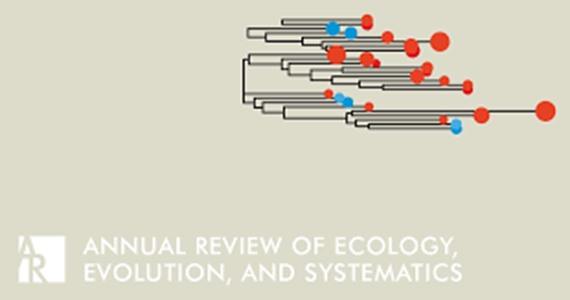城市影响外来物种的多样性和传播
IF 11.2
1区 生物学
Q1 ECOLOGY
Annual Review of Ecology, Evolution, and Systematics
Pub Date : 2024-08-02
DOI:10.1146/annurev-ecolsys-102722-012749
引用次数: 0
摘要
贸易全球化和人类流动性的增加促进了非本地物种的引入和传播,对生物多样性和人类福祉构成了重大威胁。作为全球贸易和人口的中心,城市是非本地物种引进、建立和传播的焦点。我们在全球范围内综述了驱动城市内和城市间生物入侵的城市特征,重点关注以下四个方面:(a)连通性;(b)物理特性;(c)文化和社会经济;以及(d)生物地理学和气候。城市内部和城市之间的连通性、城市规模和年龄以及财富等城市特征成为非本地物种多样性和传播的重要驱动因素,而生物地理学和气候驱动因素的相对重要性则有很大差异。阐明这些特征如何影响城市中的生物入侵,对于设计和实施减轻入侵对生态系统和人类福祉影响的战略至关重要。本文章由计算机程序翻译,如有差异,请以英文原文为准。
Cities Shape the Diversity and Spread of Nonnative Species
The globalization of trade and increased human mobility have facilitated the introduction and spread of nonnative species, posing significant threats to biodiversity and human well-being. As centers of global trade and human populations, cities are foci for the introduction, establishment, and spread of nonnative species. We present a global synthesis of urban characteristics that drive biological invasions within and across cities, focusing on four axes: (a ) connectivity, (b ) physical properties, (c ) culture and socioeconomics, and (d ) biogeography and climate. Urban characteristics such as increased connectivity within and among cities, city size and age, and wealth emerged as important drivers of nonnative species diversity and spread, while the relative importance of biogeographic and climate drivers varied considerably. Elaborating how these characteristics shape biological invasions in cities is crucial for designing and implementing strategies to mitigate the impacts of invasions on ecological systems and human well-being.
求助全文
通过发布文献求助,成功后即可免费获取论文全文。
去求助
来源期刊
CiteScore
19.90
自引率
1.70%
发文量
21
期刊介绍:
The Annual Review of Ecology, Evolution, and Systematics is a scholarly publication that has been in circulation since 1970. It focuses on important advancements in the areas of ecology, evolutionary biology, and systematics, with relevance to all forms of life on Earth. The journal features essay reviews that encompass various topics such as phylogeny, speciation, molecular evolution, behavior, evolutionary physiology, population dynamics, ecosystem processes, and applications in invasion biology, conservation, and environmental management. Recently, the current volume of the journal transitioned from a subscription-based model to open access through the Annual Reviews' Subscribe to Open program. Consequently, all articles published in the current volume are now available under a CC BY license.

 求助内容:
求助内容: 应助结果提醒方式:
应助结果提醒方式:


